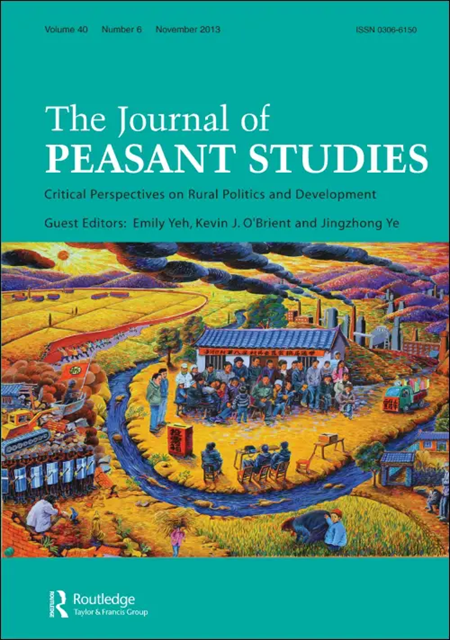Space for pluralism? Examining the Malibya land grab
IF 4.8
1区 社会学
Q1 ANTHROPOLOGY
引用次数: 28
Abstract
Recent years have seen a flood of pseudo-facts and falsely precise data on land deals. This has led some to call for a more careful approach to the study of land deals that moves away from the current hectare-centric focus towards a grounded case-study methodology. Heeding such calls, this contribution draws on fieldwork undertaken in Mali during 2011 to examine a well-known land deal, the Malibya project, which involved a contract for the transfer of control of 100,000 hectares of land within the Office du Niger. Locally and globally, the deal was denounced following the destruction of homes and gardens as a result of a canal development associated with project. In contrast, the Malian government has argued such projects are vital for expanded irrigation infrastructure and thus securing food self-sufficiency for Mali. Somewhere in between are the farmers of the Office du Niger, some of whom argue for the cessation of the project and others of whom argue the expansion of irrigation in the zone could benefit farmers, particularly those without sufficient access to land. This paper explores the differing viewpoints of the actors involved and the role the land-grabbing frame has played in mobilising these different responses.多元主义的空间?检查马里的土地掠夺
近年来,关于土地交易的虚假事实和不准确的数据泛滥成灾。这导致一些人呼吁采取更谨慎的方法来研究土地交易,从目前以公顷为中心的关注转向有根据的案例研究方法。为响应这些呼吁,本报告借鉴了2011年在马里开展的实地工作,以审查一项著名的土地交易——马里比亚项目,该项目涉及尼日尔办事处10万公顷土地控制权转让合同。在当地和全球范围内,由于与该项目相关的运河开发导致房屋和花园遭到破坏,该交易遭到了谴责。相比之下,马里政府辩称,这些项目对扩大灌溉基础设施至关重要,从而确保马里的粮食自给自足。介于两者之间的是尼日尔办事处的农民,其中一些人主张停止该项目,另一些人则认为扩大该区的灌溉可以使农民受益,特别是那些没有足够土地的农民。本文探讨了所涉及的行动者的不同观点,以及土地掠夺框架在动员这些不同反应中所起的作用。
本文章由计算机程序翻译,如有差异,请以英文原文为准。
求助全文
约1分钟内获得全文
求助全文
来源期刊

Journal of Peasant Studies
Multiple-
CiteScore
10.50
自引率
17.60%
发文量
99
期刊介绍:
A leading journal in the field of rural politics and development, The Journal of Peasant Studies (JPS) provokes and promotes critical thinking about social structures, institutions, actors and processes of change in and in relation to the rural world. It fosters inquiry into how agrarian power relations between classes and other social groups are created, understood, contested and transformed. JPS pays special attention to questions of ‘agency’ of marginalized groups in agrarian societies, particularly their autonomy and capacity to interpret – and change – their conditions.
 求助内容:
求助内容: 应助结果提醒方式:
应助结果提醒方式:


